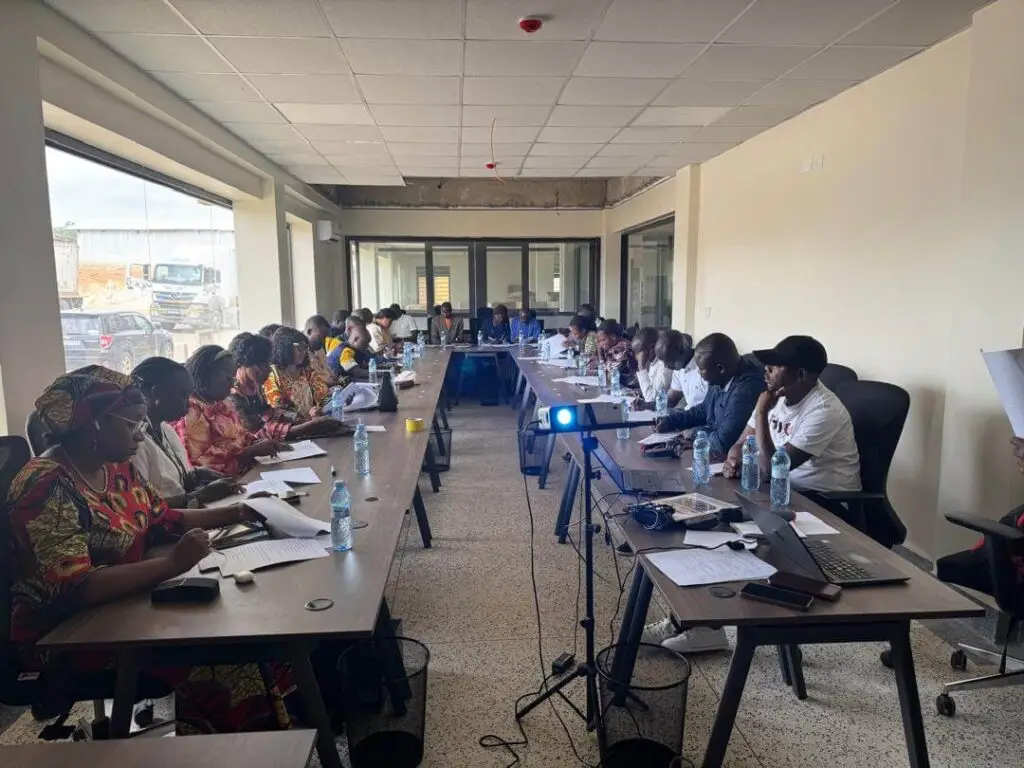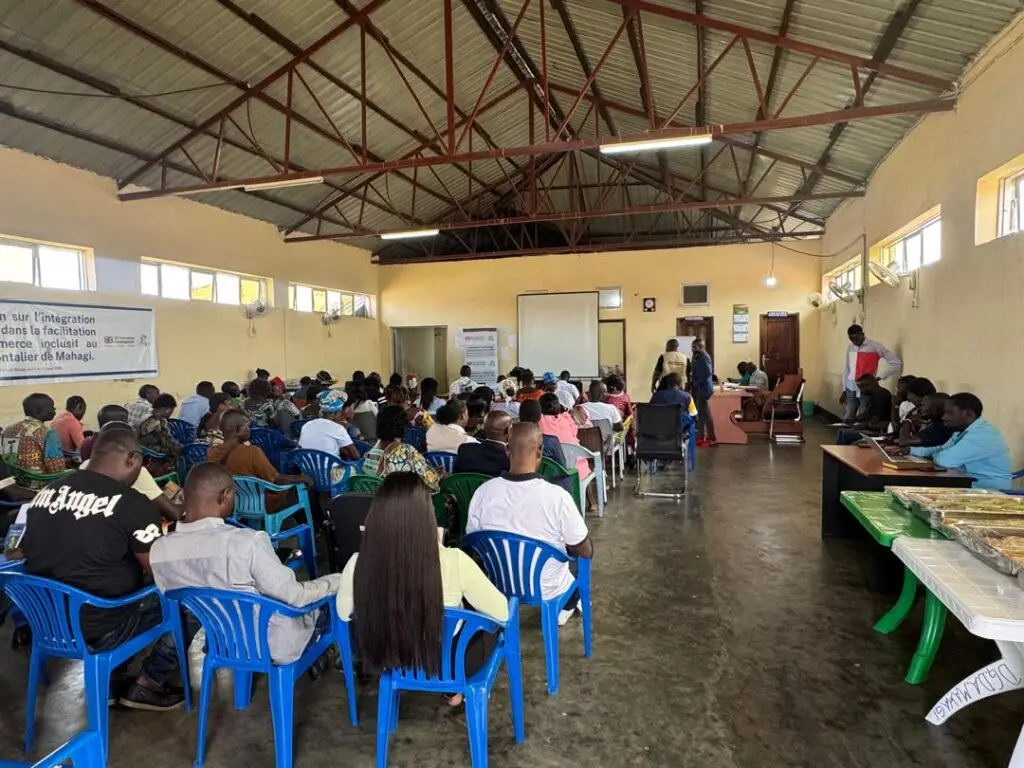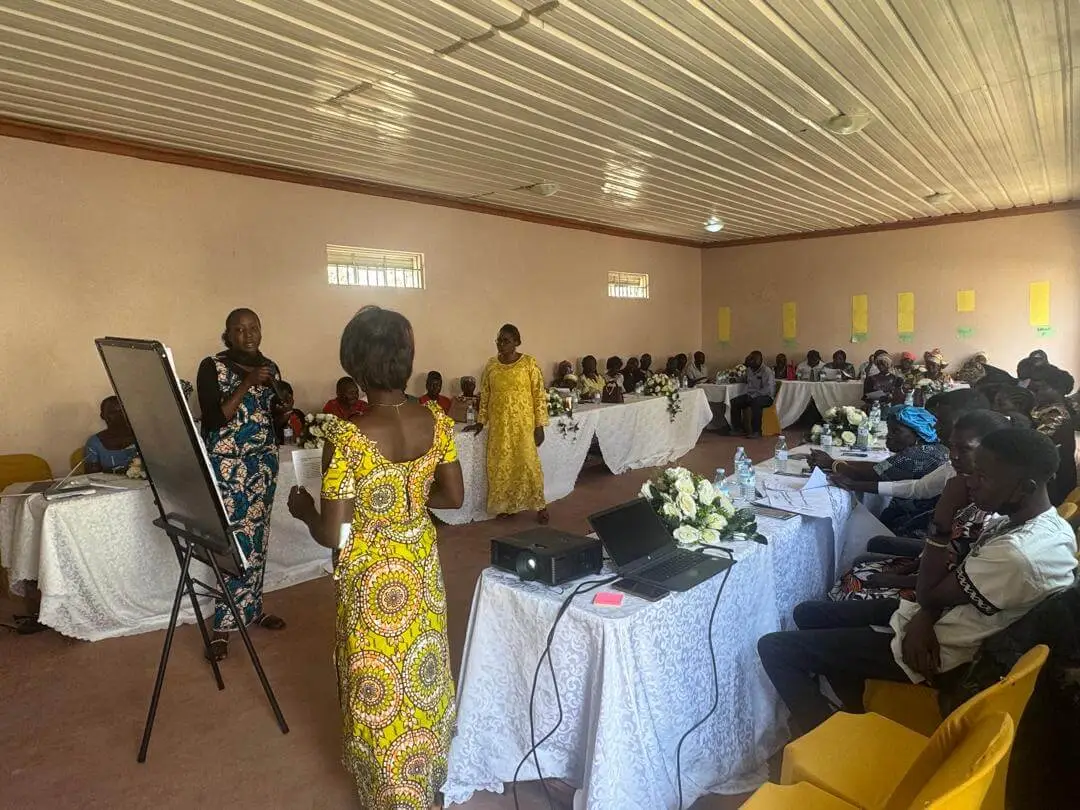Mahagi, situated on the eastern border of the Democratic Republic of Congo (DRC), serves as a vital cross-border trade hub with Uganda, where women predominantly engage in small-scale trading activities. Despite their crucial role, these women often operate under challenging circumstances marked by informality, insecurity, and limited access to protection, information, and fundamental rights.
Recognizing these difficulties, TradeMark Africa (TMA), in collaboration with the DRC government and with funding from UK International Development, implemented a targeted training program at the Mahagi One Stop Border Post (OSBP). This week-long initiative brought together both women traders and border officials to address the systemic and practical obstacles hindering women’s full participation in cross-border trade.

The training adopted a dual approach. Women traders received education on their rights, obligations, and available mechanisms for reporting misconduct. Simultaneously, public officials underwent sensitization on their responsibilities under national and subregional gender frameworks. Delivered through five focused modules, the sessions covered crucial topics such as gender awareness, relevant legal instruments, advocacy strategies, and the monitoring of gender-responsive trade systems. This initiative fostered a significant and rare dialogue between regulators and traders, underscoring the effectiveness of collaboratively developing solutions to dismantle entrenched mistrust.
A key aspect of the initiative was the creation of a platform for structured dialogue between traders and border officials, two groups whose interactions are often strained. By facilitating joint learning and promoting mutual understanding, the training contributed to rebuilding trust and establishing a foundation for more responsive and inclusive border governance.
However, security remains a pressing concern, as women traders frequently encounter harassment and intimidation at the border. The absence of a formal reporting mechanism, coupled with fears of retaliation, often leaves such incidents unaddressed. A primary recommendation arising from the training is the establishment of a dedicated reporting and referral office at the OSBP. This office would offer a secure and confidential channel for women to report instances of corruption, abuse, and gender-based violence, while also providing referrals to psychosocial support when necessary.
The initiative also aims to foster long-term structural reforms. Women are being encouraged to form cooperatives to amplify their collective voice and influence in trade-related decision-making processes. Plans are underway to introduce digital tools, including a virtual marketplace and the integration of the Simplified Trade Regime into existing customs systems. These interventions are anticipated to reduce transaction times, improve access to vital information, and enhance transparency throughout the trading process.

The ongoing operationalization of the Mahagi OSBP is expected to further enhance trade efficiency and improve service delivery. These efforts align with TMA’s broader commitment to promoting inclusive and sustainable trade that yields fairer outcomes for women, youth, and persons with disabilities. Institutional support is crucial for ensuring the lasting impact of this initiative. Trained border officials will share their knowledge with colleagues, while participating women traders are expected to conduct awareness sessions within their communities. Plans to engage local media will further contribute to shifting public perceptions, challenging harmful stereotypes, and increasing the visibility of women in trade.
The impact of the initiative will be monitored through clear indicators, including reductions in clearance times, fewer reported cases of harassment, increased adoption of digital solutions, and the formation of women-led cooperatives. While systemic change is a gradual process, this initiative has established a robust foundation for more equitable and secure cross-border trade. For years, the women of Mahagi have sustained cross-border trade with limited recognition, support, and safeguards. This initiative marks a turning point, equipping them with knowledge, strengthening their networks, and enhancing their safety, thereby offering a tangible shift towards greater dignity, voice, and opportunity in their daily trading lives.


